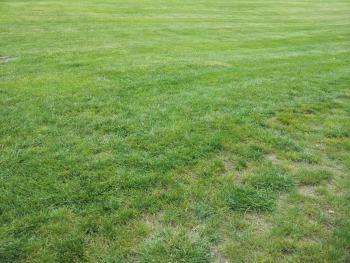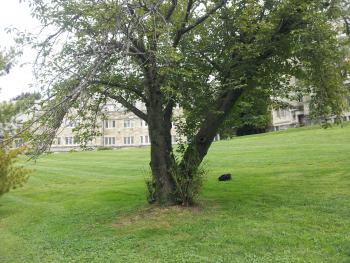Serendip is an independent site partnering with faculty at multiple colleges and universities around the world. Happy exploring!

"What do we need to flourish?"
I meant to ask you to leave w/ me what you wrote--and read--in class today;
I would like to post this as another collectively written "poem," if you are willing.
If you are, please add your answers to the questions--
"What do I need to flourish here?"
"What might we need to flourish here?"--
as comments to this post, and I'll collate them all.
Thank you all, again--
A.
Still processing Anne's class, how to compartmentalize
Today was an emotionally intense Silence class. It's been a few hours since class ended, but my mind is still racing, and processing. But its 6:45 and that means my post for Barb's class is already late. I was planning on writing a post about how the language of the Cognitive Behavioral Therapy (technically last week’s reading, though I believe we’re discussing tomorrow) reading bothered me and was damage centered, but I couldn't even focus enough to pull quotes out and explain, and it seemed disingenuous to post just for the sake of posting. But now I’m struggling with whether it’s better to not post if I’m just writing to get my checkmark or whatever, or whether it’s unfair to Barb that I am not committing enough time to her class because I feel so emotionally all over the place from another class. Should I be able to compartmentalize? Is it because the nature of the 360 that I feel I can even post these thoughts and not actually respond to the assignment? I don’t really know, looking forward to the 360 lunch tomorrow, hoping I’ll be more centered by the class time.

This is a very different kind of place
After three weeks of preparation, we finally got to know about the people inside the prison. Our 360 courses are titled as Women in Walls. During previous weeks, we have been talking about what are the perceptions about the offenders and place in general.
Saturday trip was an eye-opened experience and even a little bit shocking for me. To be really inside ESP was another unforgettable trip. I was constantly thinking about the relationship of people and environment and the reciprocal effects on each other. The later part about the transgender experience in prison was really uncomfortable and made me think more about the purpose of our courses especially the vision part.
When we enter a closed institution, what are my expectations from this experience? The answer has changed over these several weeks. Knowing more about sad stories behind his cold justice system, my appearance in the coming 5 weeks will make a difference in my life and hopefully theirs.
However, we I was standing in that luxurious prison cell in ESP and imaged that I will spend whole day here. I realize that imprisonment experience itself is a torture and not to mention that the current jail system was even more crowded.

Pre-conceived Notions
One of the biggest issues I have with the dependency discourse is that it disproportionately effects women both in and out of prison. As we can see in Offending Women and its description of the Alliance program, the dependency discourse seemed to dominate both how the institution itself formulated their political and istitutional needs as well as how the program constructed their goals. It makes me wonder how much of what we want and need for incarcerated women is already pre-determined by the way in which we label and categorize them before they become incarcerated. It is not a mystery that most incarcerated people are of poverty stricken backgrounds and that they are usually non-white. But, as the numbers have shown, it is also true that poor women of color are getting incarcerated at higher rates than any other population. I think that in order to understand incarceration of poor women of color and thus, how education within the walls of the institutions affect them, we must also understand how they are seen in greater society. This brings me to the issue of Welfare. Many poor women of color are on welfare before they even become incarcerated. The term welfare in it of itself assumes that there is, in a heirarchical sense, a give and take relationship between those on welfare and those distributing it. It makes women out to look like leeches.
Where I Find Inspiration
While I wasn't in class on to Tuesday to expand on Clark's ideas, I do know that nothing I have read that he has written has inspired me. Some of it has made me think a little differently about technology, but nothing more than that. What has really affected me and made me see the relevance of our discussions and technology's impact was today's class. I left class feeling like I finally had a concrete and relevant example of how technology can be used as a meaningful and effective tool. I think in one of the best directions we can take this class is to explore more "real world" uses of technology within our community.

Dependence
I’m having a really hard time coming terms with the Alliance program described in “Offending Women” in relation to the YASP presentation last night. Clearly, the dependency discourse promulgated at Alliance is problematic, particularly when it is clear that these ideas don’t exist in isolation, but are shared by many important policy makers. What strikes me as particularly strange is that there is a real focus on rejecting “dependency,” but no talk about independence. In other words, the staff at Alliance (and I’m sure many people share this focus) discuss the ways in which state dependence, such as receiving welfare, is problematic, but don’t illustrate what being independent would look like. The youth from YASP seemed to be incredibly independent and successful post-incarceration – they are holding part-time jobs, waging an important political campaign, and doing amazing work in both schools and prisons. I have no idea if they’re “dependent” in the sense of receiving government benefits, but I can see their independence through their actions. I also think this issue of viewing incarcerated or institutionalized individuals (or “criminals”) as passive, rather than active citizens, plays into larger themes in our course. For instance, we tell drug dealers or sex workers that what they are doing is illegal – and that they need to stop doing it – but rarely explain why or provide alternative ways they can support themselves or their families.

Spidering Spiders
Today inside the tree, there are spiders everywhere. I mean it. Crawling and hanging from branches, the spiders have taken over the tree. At first, I thought this was excellent. There are so many different species of little creatures scuttling and skipping around on quick legs, coexisting and interacting with each other, that our human idea of “diversity” looks boring by comparison. Imagine if humans could create intricate cities out of material produced from our own bodies with the help of other humanoid creatures that are twice or half our size. Spiders are great. Maybe we’re not as advanced as we think we are, in some ways. We can’t even handle difference within our own species, so we would probably handle coexisting with another species like us very poorly.
What is happening in the tree? Is it spidering? Is it crawling, weaving, or living? These creatures do too much in their complicated lives to be simplified to a word like this. It isn’t fair to them. No writing is fair to them. Only a spider can really constitute a spider. A word about a spider doesn’t really mean much.

Meditations in Taft Garden - 2
Difficult To Be Really Present With a Headache
I'm currently sitting on the third step from the front of the fountain at taft garden. I have never noticed these peculiar bugs before but they are tiny, tiny flies or mosquitoes of a creamy tan color. They are floating so gracefully, so carefree, gliding around in circles. I wonder if they have any agenda or if they are simply enjoying themselves, enjoying their life. They don't seem in pursuit of anything but rather just trailling around and around in a random motion. But of course I'm not certain. The sun is peeking through the clouds, trying to force its way through so that although the light around me is a grey-white, I still cannot comfortably look up because the sun is still bright. Maybe I could find a deeper meaning in that. I wish I could but at the moment, it is difficult for me to be truly present because all I can feel is either
a) a headache from nearly four hours of intense concentration and running around in Organic Chemistry laboratory
b) a headache from the acetone fumes I accidentally inhaled while washing my glassware with it
c) a headache from swirling things with dangerous and corrosive solutions (I was extracting caffeine from tea).
d) all of the above.
But the flies are still beautiful. I wonder if I can maybe telepathically send tiny bits of my weightless headache to the tips of their wings so that they could float away alongside them, dissolving into the evening.

Is one show of independence more valid than another?
Before I'd even finished reading Offending Women, I was already caught up in thinking how I would have done it better (now I’m potentially falling into this trap of damage-based thinking…). Alliance, as Haney made clear, was riddled with problems. Something I found particularly interesting, however, was the way in which Alliance's shortcomings did more to promote independence within the young women than the actual program did. Their initiative to ban together and instigate change within the institution demonstrates just the type of self-dependency that Alliance aims for, but for all the wrong reasons. It's ironic, then, that the groups butted heads so much just because the avenues through which these women displayed their independence were misaligned with the expectations of Alliance. I was also saddened by the women's whole-hearted confidence in the ability for welfare to be able to provide for them once they got out. I think this dependence speaks again to the need for structure that was demonstrated when the women fought against the constant schedule changes they encountered in the facility. Not necessarily a sign of laziness in my opinion, depending on welfare as a steady constant presence for these women would much less stressful than trying to find an employer who will take them in despite the inevitable black mark of a felony. It almost makes sense that Welfare Queens (to borrow from couldn'tthinkofanoriginalname and Chandrea) are born from these young women. However, especially after the presentation last night, I see the value of programs like YASP.


 The grass is mowed in very neat rows on this hill, the hill I take to get down to the site.
The grass is mowed in very neat rows on this hill, the hill I take to get down to the site.

